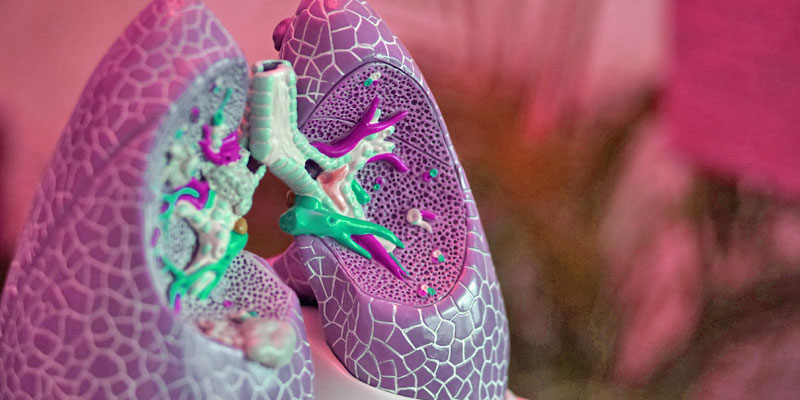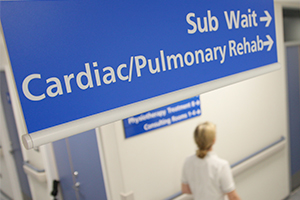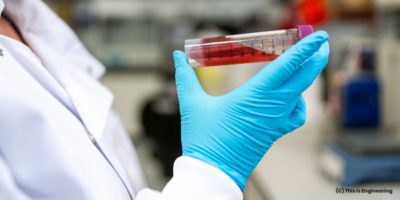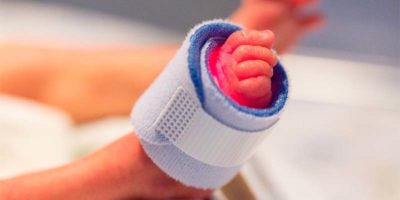Rachael Moses OBE is the president-elect of the British Thoracic Society, starting her role in November 2021. Rachael is also head of clinical leadership development within the NHS Leadership Academy as well as being a part-time consultant respiratory physiotherapist. She was recognised in the Queen’s 2021 Birthday Honours list, and was made an Officer of the Order of the British Empire (OBE) for her services to the NHS.
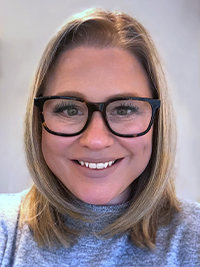
“We have had to adopt new ways of working at scale and speed, and this has required the never-ending commitment, dedication, and drive of so many people.”
My leadership journey
I qualified as a physiotherapist just over 20 years ago, having spent most but not all of that time working in the NHS.
I have been fortunate to have had the opportunity to work in other countries as part of humanitarian aid work and also on deployment as a British Army officer. These experiences working in other health and care systems have allowed me to develop myself clinically, professionally, personally, and definitely raised my awareness and understanding of inequalities.
I spent the early years of my career working in rotational posts in the Newcastle Upon Tyne Hospitals with some incredible teams, including heart and lung transplantation, infectious diseases, emergency medicine and critical care.
My first leadership role was in St. George’s Hospital in London, where I worked in a large multicultural major trauma teaching hospital, and it is here my real leadership journey began.
I was then fortunate to be offered a consultant post in the North West, working with the Lancashire and South Cumbria long-term ventilation service, looking after young people and adults with complex respiratory needs. Clinically, this was one of the greatest times in my career as I was really able to offer holistic and personalised care to people with complex respiratory needs, which can be transformational to a person’s life as well as their families.
This involved working with a number of stakeholders across primary and secondary care, community, education, third sector, hospices, charities, and of course patient support groups. It was in this role that I really started to use social media to showcase the impact and importance of multi-professional working and leadership.
A variety of roles
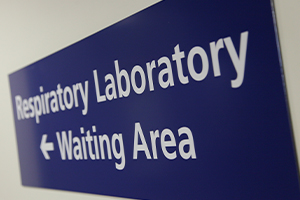
I am fortunate to have additional roles, including being the multimedia editor for Thorax BMJ, and of course, I’m currently president-elect for the British Thoracic Society, soon to become president in November 2021.
Adopting new ways of working at scale and speed as a result of COVID-19
The pandemic has affected our health and care systems in so many ways. It has been devastating as a respiratory clinician to see the impact of COVID-19 on people, communities, systems and, of course, workers.
We have had to adopt new ways of working at scale and speed, and this has required the never-ending commitment, dedication, and drive of so many people. As a result, we collectively as NHS services have saved so many lives through clinical care, research, vaccination programmes and prevention and education.
The pandemic has also been an enabler in some ways for the use of digital technology, for professionals working outside of traditional roles and the coming together of communities as we have never seen before.
Sadly though, the pandemic has further highlighted gross healthcare inequalities, particularly for people from ethnically diverse, LGBTQIA+, and disability communities, and we have a lot of work to do in providing inclusive equitable care for all.
The Nightingale Hospital London: Building a field hospital at high speed
The first thing I always say about my time at the Nightingale Hospital London is how incredible the teams across London, and indeed the UK, were in upscaling their acute critical and respiratory care capacity, so the Nightingales were never needed to be fully utilised.
I can only speak about the pan London response, and it was truly incredible. The people came from across the UK to build a field hospital at high speed, to help support London’s critical care capacity. The help and support from the military, St John Ambulance, and other voluntary organisations were humbling to be part of, and I feel privileged to have worked alongside some very brilliant leaders there.
Providing holistic, personalised care to patients with respiratory diseases
We know over 12 million people (approximately one in five people) have a form of long-standing respiratory illness, like asthma or chronic obstructive pulmonary disease (COPD). Over half of these people are taking prescribed medication to help manage their lung disease, with a significant amount of people also being supported with individualised care and support plans.
I work alongside incredible Doctors who are crucial in delivering exceptional patient care but the diagnosis, treatment, interventions, and care that is required to enable people living with lung disease to thrive and survive is not a job just for doctors. Respiratory medicine relies heavily on our health care scientists, physiologists and radiographers, laboratory technicians for diagnostics, speech and language therapists, nurses, physiotherapists, psychologists, pharmacists, occupational therapists, dietitians, music therapists, and many others who provide holistic personalised care to patients with respiratory diseases.
And if you think about it, being able to breathe is pretty fundamental to every activity of daily living, so having diversity in approaches, interventions, treatment options and therapy is the only way we will be able to improve the lives of those living with lung diseases.
With lung diseases being accountable for more than 700,000 hospital admissions every year in the UK, and over six million in-patient bed days, prevention is so important. Treating tobacco dependency, supporting weight management and nutritional needs, education, and advice on being active is more important than ever, after the last two years of living in pandemic times and the impact of social isolation, stress, unemployment, on top of existing socio-economic deprivation.
And this is again where a multi-disciplinary team plays a huge role in prevention, education, diagnostics, treatment interventions, therapy, and providing holistic end of life care with the person’s best interests as the priority throughout every stage.
Becoming the fourth female president of the British Thoracic Society
There have been 38 past presidents of the British Thoracic Society and I am the fourth female to take up the presidential position. So, despite the first-ever president, Dame Professor Margaret Turner Warwick, being female, it took 18 years until the next female president Professor Anne Tattersfield, and another 14 years until the next, Professor Ann Millar.
We should have had another female president the following year, Professor Wedzicha Jadwiga, but she had to resign due to a conflict of interest with an editorship, so Professor Ann Millar continued in this role.
Fast forward seven years and I am the next female British Thoracic Society president, but the first to be from a non-medical background, which is a huge step forward in recognising the importance of all the professions working in respiratory medicine.
Promoting equity and belonging
Our healthcare leadership systems tend to be built on medical hierarchy, and more specifically white, male heteronormative, cis-gendered doctors, which is something we need to change.
We have challenges in some of our professional groups. For example, I am a physiotherapist, and I know that we lack diversity in our profession. Physiotherapy is dominated by white, heteronormative cisgender females, especially in the more senior positions, and we have had to face uncomfortable truths as to the realities of why this is, especially over the last year.
Personally, it has really forced me to understand and recognise both my own privilege as well as my biases and how it is my responsibility to be zero tolerant to any forms of discrimination, both personally and professionally.
With regards to ethnic diversity, we need to improve inclusion in most senior positions of responsibility within the society, and this has been acknowledged. There is work being undertaken with an external organisation to help develop an equal, diverse, and inclusive strategy that will create a society where everyone feels valued, and truly belongs. This is a work in progress and the society will be seeking engagement from its members in the near future.
Personally, I have been and will continue to host listening events for our colleagues from LGBTQIA+, ethnically diverse and disability backgrounds as well as those in trainee positions, whilst acknowledging the additional challenges all people in these roles may face in the current healthcare climate.
Equity and belonging are hugely important to me, and I will never tolerate discrimination of any form to anybody.
Strength in collaboration
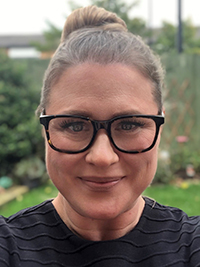
This is a real-time of change for respiratory medicine, and we are seeing the development of innovative roles in advanced clinical practice and physicians’ associates, as well as people working in specialist and consultant roles in nursing and therapy disciplines. We have to grow the number of these roles, as they are essential to the respiratory medicine workforce.
I want personalised care to be at the forefront of everything we do as healthcare professionals, with the focus always being what matters to the person.
We also need leadership training to be embedded in every undergraduate healthcare programme across the UK so we can really embed shared values as part of lifelong learning, and by doing this change the culture of health and care systems to nurture professionals at every stage in their career, both with compassion and commitment.
Here are some free personalised care and leadership resources that Womanthology readers might be interested in: https://www.personalisedcareinstitute.org.uk/ https://www.leadershipacademy.nhs.uk
https://www.linkedin.com/in/rachael-moses-08a328ba/

